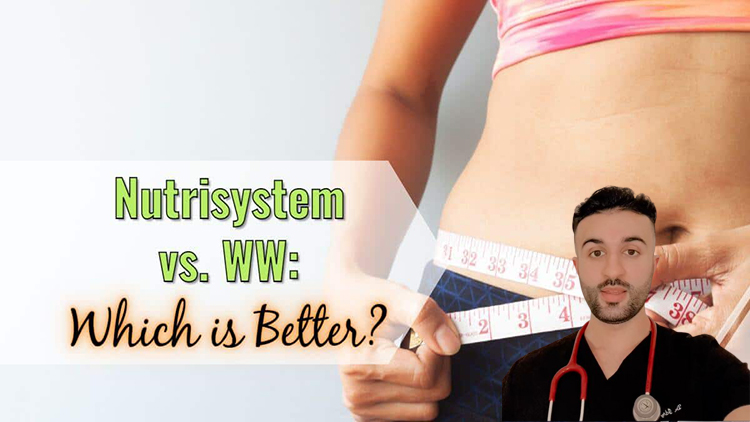
Should you have surgery and, if so, when?
Whether you are pregnant, trying to get pregnant, or even just thinking about pregnancy, the news that you have one or more uterine fibroids can raise questions.
You may be wondering what, if anything, you should do to treat uterine fibroids during or before pregnancy. Are those treatments even safe, and how does treating uterine fibroids affect the possibility of getting pregnant later on? Well, the good news is that the impact may be minimal.
“Most of the time, uterine fibroids don’t affect pregnancy, per se,” Tom Ruiz, MD, OB-GYN at MemorialCare Medical Group in Fountain Valley, Calif., told Health. “But they can pose challenges depending on their location.”
To help you better understand your overall fertility outlook after a fibroid diagnosis, Health spoke to experts about the most common questions expectant parnets have about uterine fibroids and pregnancy.

What Are Uterine Fibroids?
Uterine fibroids are growths in the uterus. For the most part, uterine fibroids are noncancerous. Some people with uterine fibroids have no symptoms, while others may have symptoms, such as:1
- Heavy or painful periods
- Feeling full in the lower stomach
- Enlarged lower stomach
- Frequent urination
- Painful sex
- Pain in the lower back
Risk Factors for Uterine Fibroids
The cause of uterine fibroids is unclear. Although, some factors may increase your risk of uterine fibroids, including:1
- Age (uterine fibroids most commonly occur during the 30s and 40s until menopause)
- Obesity
- Family history
- Red meat and ham consumption
At the same time, some factors may lower your risk of uterine fibroids. For example, using oral or injectable contraceptives over a long period may help. Also, your risk decreases with each pregnancy that you have.
Can I Get Pregnant if I Have Uterine Fibroids?
Five percent to 10% of infertile people have uterine fibroids. In other words, uterine fibroids are not a primary cause of infertility. So, having uterine fibroids doesn’t necessarily mean you’ll have trouble getting pregnant.2
But keep in mind that uterine fibroids can interfere with conception and implantation, according to a study published in 2016 in Current Obstetrics and Gynecology Reports. The researchers reported that study that uterine fibroids can prevent pregnancy in the following ways:3
- Anatomical abnormalities that block the passage of sperm
- Changes to regular uterine contractions
- Anti-inflammatory responses
- Changes to the uterine lining
How Do Uterine Fibroids Affect Pregnancy?
In many cases, uterine fibroids won’t affect pregnancy at all. Still, sometimes the size can interfere with your prenatal care, said Dr. Ruiz.
“If [uterine fibroids are] really big, it can be hard to measure the size of the [fetus] and assess fetal growth. So, we may have to do regular ultrasounds to make sure the [fetus] is growing normally,” explained Dr. Ruiz.
Small uterine fibroids are more likely to grow in the first trimester than large ones. Also, uterine fibroids that grow in the lower uterus are likely to change position by the end of pregnancy, according to a study published in 2020 in the American Journal of Obstetrics and Gynecology.4
First Trimester
Pregnancy can prevent new uterine fibroids from growing. But during the first trimester, the hormone estrogen increases. That increased estrogen may cause uterine fibroids to grow.5 You may have bleeding and pain if you do have new uterine fibroids during the first trimester.6
The other concern during pregnancy is the growth of existing uterine fibroids. Increased estrogen can increase or decrease the size of fibroids. Increased uterine fibroids are common, said Dr. Hansard. If that happens, uterine fibroids can impact labor and delivery.
“If a uterine fibroid grows, it will be extremely vascular,” Lisa Hansard, MD, a reproductive endocrinologist at Texas Fertility Center, told Health. “So, if you need a C-section at delivery, it’s become dramatically risky because of [the increased risk of] blood loss.”
Also, a study published in 2017 in the American Journal of Epidemiology found no evidence that your risk of miscarriage increases with uterine fibroids. Previously, researchers had uncovered a connection between uterine fibroids and miscarriage.
But the 2017 study found that evidence was “potentially biased,” finding miscarriage rates are similar regardless of uterine fibroids.7
Second and Third Trimesters
During the second and third trimesters, your uterus expands as the fetus grows. At the same time, uterine fibroids may twist, which may cut off the blood supply. In that case, you may have severe cramping.8
Also, uterine fibroids may increase your risk of placental problems during late pregnancy. Those include placental abruption, when the placenta separates from the uterus wall, and placenta previa, when the placenta blocks the cervical opening.9
Treating Uterine Fibroids Before Pregnancy
If a healthcare provider determines that the size or location of your uterine fibroids may interfere with pregnancy, treating them via surgery before you become pregnant is best, noted Dr. Hansard. Working closely with a healthcare provider on the timing of treatments may also help with conceiving.
“You should try to plan the surgery in a timeline that’s close to when you want to conceive,” said Dr. Hansard. Also, some evidence suggests a 15% to 33% risk that uterine fibroids reoccur after surgery.10 So, as soon as you heal is the optimal time to conceive.
But working with a healthcare provider is essential. Surgery could affect the fetus if your uterus hasn’t fully healed, added Dr. Ruiz.
“If a woman has had fibroid surgery and gets pregnant afterward, we recommend she wait three to six months to get pregnant,” explained Dr. Ruiz. “But depending on how big the fibroid was and how deeply we had to cut into the uterus, she may need a Cesarean section [C-section] to deliver.”
There may be risks of vaginal birth after surgery, including uterine rupture. So, a healthcare provider may recommend C-sections for people who have previously had surgery to remove uterine fibroids.11
Treating Uterine Fibroids During Pregnancy
Unfortunately, you cannot do much during pregnancy to treat uterine fibroids. Except in rare cases, most healthcare providers won’t perform surgical procedures on the uterus.12
A healthcare provider may recommend conservatively managing any pain symptoms during pregnancy. For example, increasing the amount of rest you get and taking pregnancy-safe pain relievers may help.
How Do Uterine Fibroids Affect Delivery?
Many pregnant people have uterine fibroids with no complications. While the same is true for labor and delivery, there are still risks, warned Dr. Ruiz. Those risks may include preterm labor and postpartum hemorrhaging.
“If the fibroids are big, you could be predisposed to preterm labor because they make the uterus itself bigger,” explained Dr. Ruiz. “There’s an increased risk for abnormal bleeding during delivery for the same reason. Plus, the uterus may not contract as readily as a non-fibroid uterus after delivery.”
The location of fibroids could change the outcome of your newborn’s birth, added Dr. Ruiz. Uterine fibroids in the lower uterus could cause the fetus to be in a breech position, which may require a C-section.13
Treating Uterine Fibroids After Pregnancy
In some cases, the hormonal changes that occur with childbirth and breastfeeding may help shrink uterine fibroids, per a study published in 2019 in Scientific Reports.
The researchers found that uterine fibroids significantly reduced among all 157 postpartum women studied compared to their pre-pregnancy ultrasounds. In some cases, the uterine fibroids had disappeared completely. Also, breastfeeding helped shrink or stop growth among postpartum women.14
But if your uterine fibroids are an issue after delivery, the typical treatments remain safe. But you may want to wait at least six months postpartum to undergo any surgical procedures. That time allows your uterus to heal and return to its normal size.
A Quick Review
Uterine fibroids are common and likely won’t impact your ability to become pregnant or to have a healthy pregnancy. Certain factors may increase your risk for fibroids, including age, family history, obesity, and eating habits.
You can treat fibroids before or after pregnancy. But working with a healthcare provider at all stages of pregnancy is essential.






